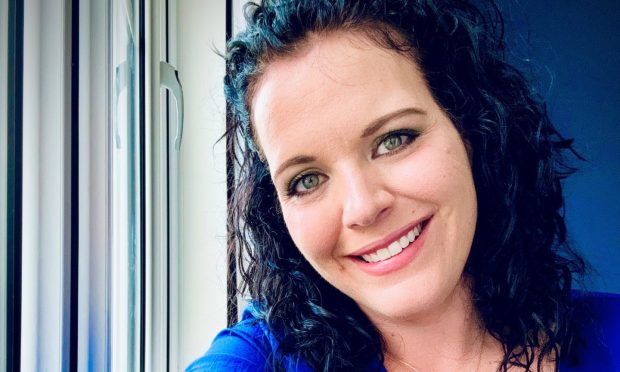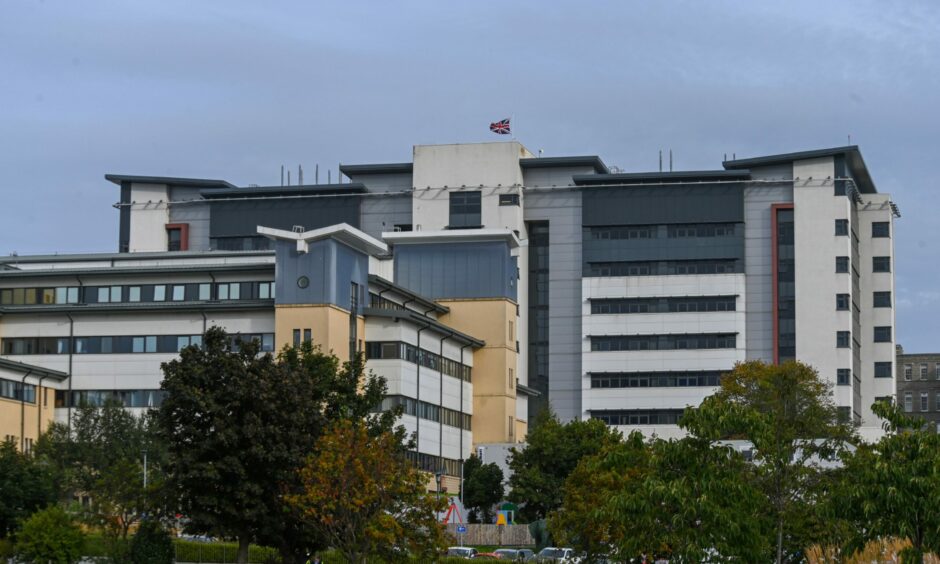An Aberdeen mum has opened up about her fears her “children would be taken away” from her as she battled with her maternal mental health.
Hope Cawood, who lives in Blackburn, says she was in “desperate need of help” after struggling to cope following the birth of her two boys.
Originally from Louisville, Kentucky in the USA, the 34-year-old moved to the UK in 2015.
Hope’s complications began while pregnant with her first son Silas back in 2018.
She struggled to cope after suffering life-threatening maternal sepsis and post-traumatic stress disorder as a result.
The effects of her PTSD were also felt after the birth of her second son, Brenley, at ARI after she moved to the Granite City in 2020.
The isolation of lockdown of that year coupled with the trauma and anxiety of the pregnancy period made her suffer despite their successful delivery.
‘I thought they’d take my kids away’
Now, Hope has opened up about how a lack of understanding of maternal mental health can give mums a mountain to climb during and after pregnancy.
She hopes to shine a light on the invisible battles that soon-to-be mothers go though.
Hope said: “It was over a year after the birth before I finally realised I was in desperate need of help. I was ashamed of the feelings that I had.
“People kept telling me ‘at least you’re alive and you have a healthy baby, there’s no reason to feel the way you feel’.
“I felt like I should have been fine and was in denial that I was so unwell.
“I was afraid that my children were going to be taken away from me as I was not coping well and I was afraid to reach out for help, so I stayed silent which was quite easy to do as I wasn’t having face-to-face contact with healthcare professionals.
“It’s okay not to be okay, and my advice to any women who are struggling is to speak up.
“Don’t suffer in silence, there is help out there.”
New ‘Hope’ for mum’s mental health counselling
Hope explained how she was helped by a perinatal mental health midwife, north-east mental health peer support service LATNEM, and received cognitive behavioural therapy as part of her recovery at Foresterhill.
Now a student at Aberdeen University, she is in her first year studying for diploma in counselling – hoping to help other mums in the same position.
Working to end the stigma of mental health during pregnancy, Hope has also teamed up alongside SIGN, part of Healthcare Improvement Scotland, which works to improve standards of care across the UK.
The two have now worked together to publish new guidelines to NHS nurses which will help combat the issue, as well as an app and online toolkit for mums.
The guideline also included input from patient groups, support groups and women who have been pregnant and given birth.
The new guideline makes three recommendations to carers:
- Screening should take place for all women in the antenatal and postnatal periods for possible depressive disorders
- Women displaying symptoms of perinatal mental health disorder should have access to suitable treatment eg cognitive behavioural therapy
- An urgent mental health assessment should be carried out as a priority for women at risk of suicide.
The Right Decisions: Health & Care app can be downloaded from the Apple or Google app store and the guidelines are also available to be viewed online here.


Conversation